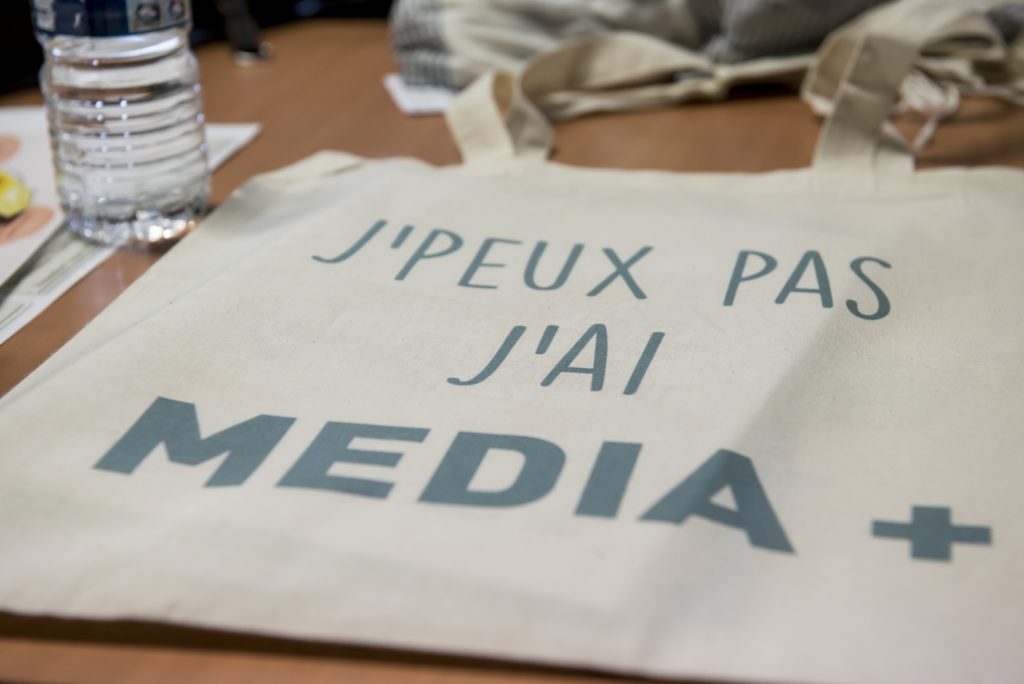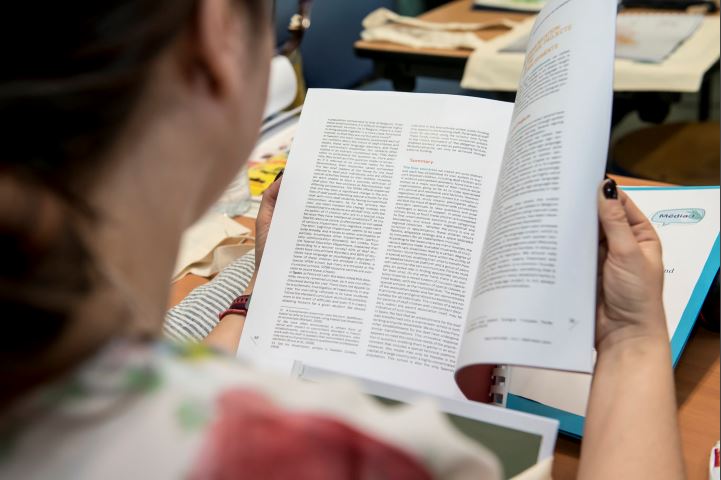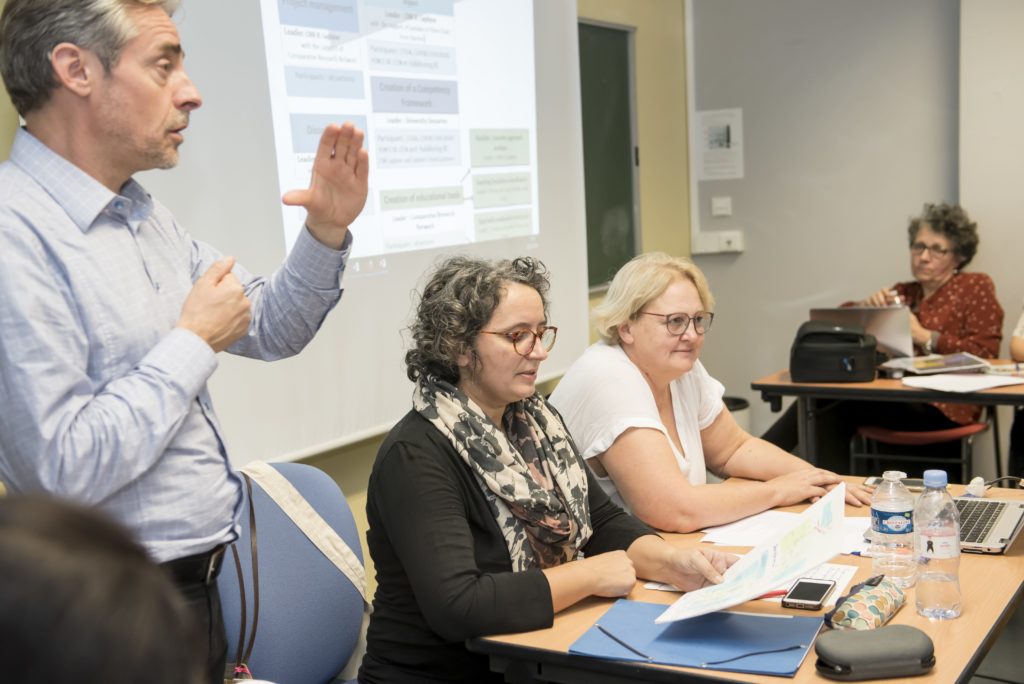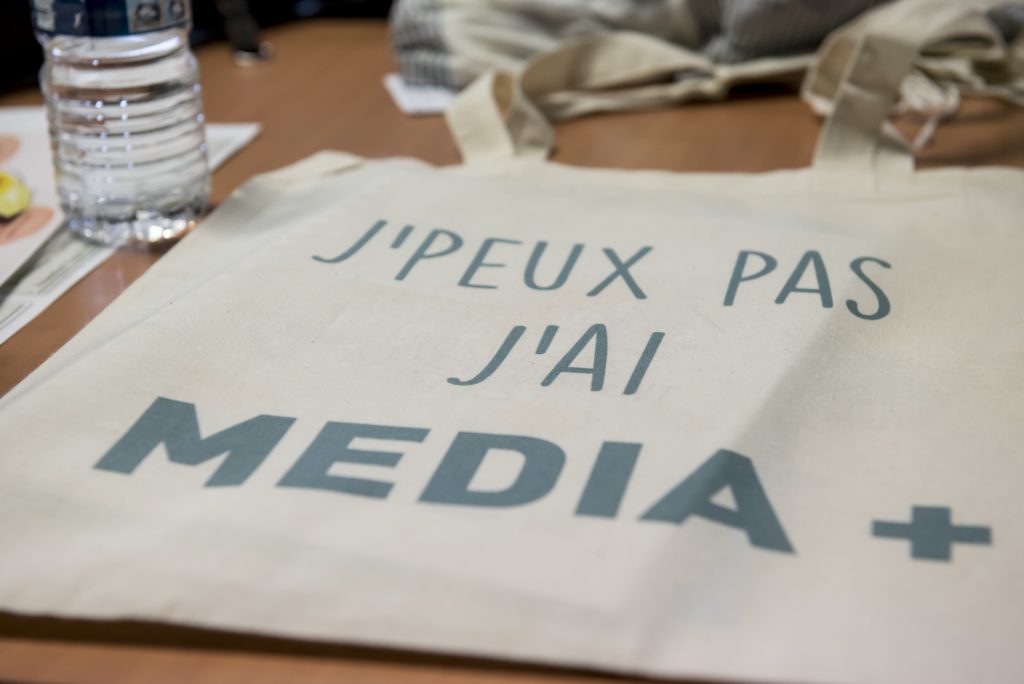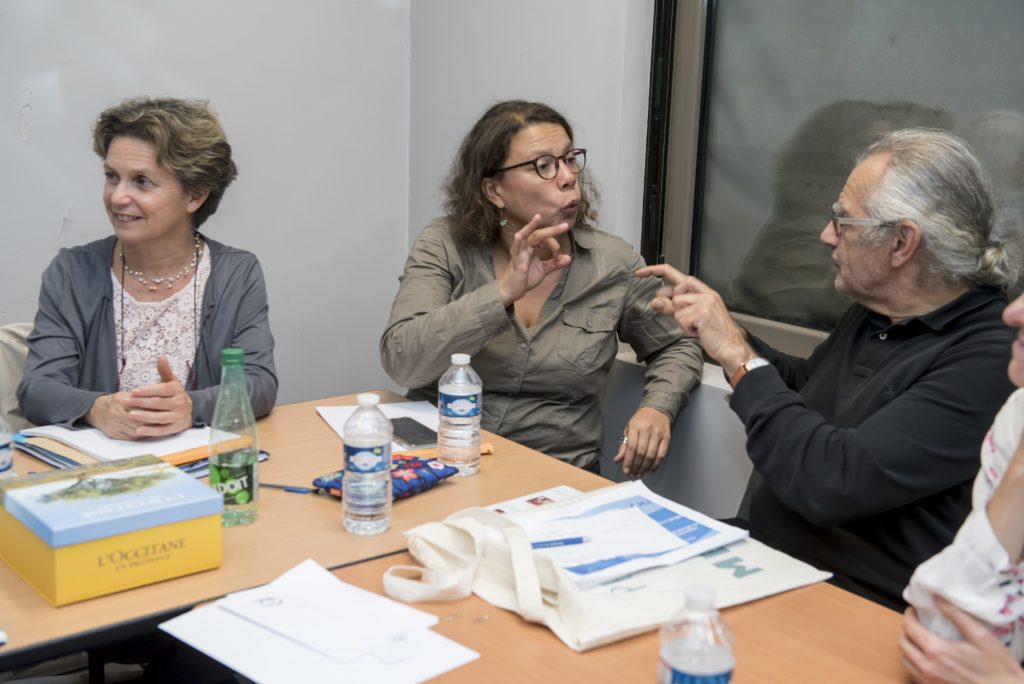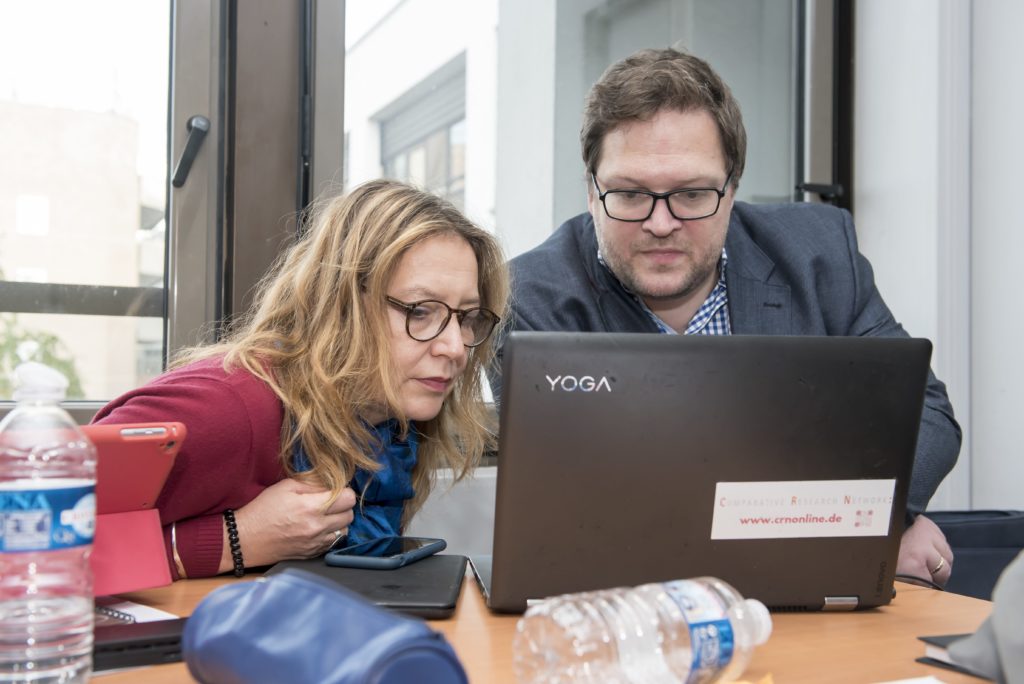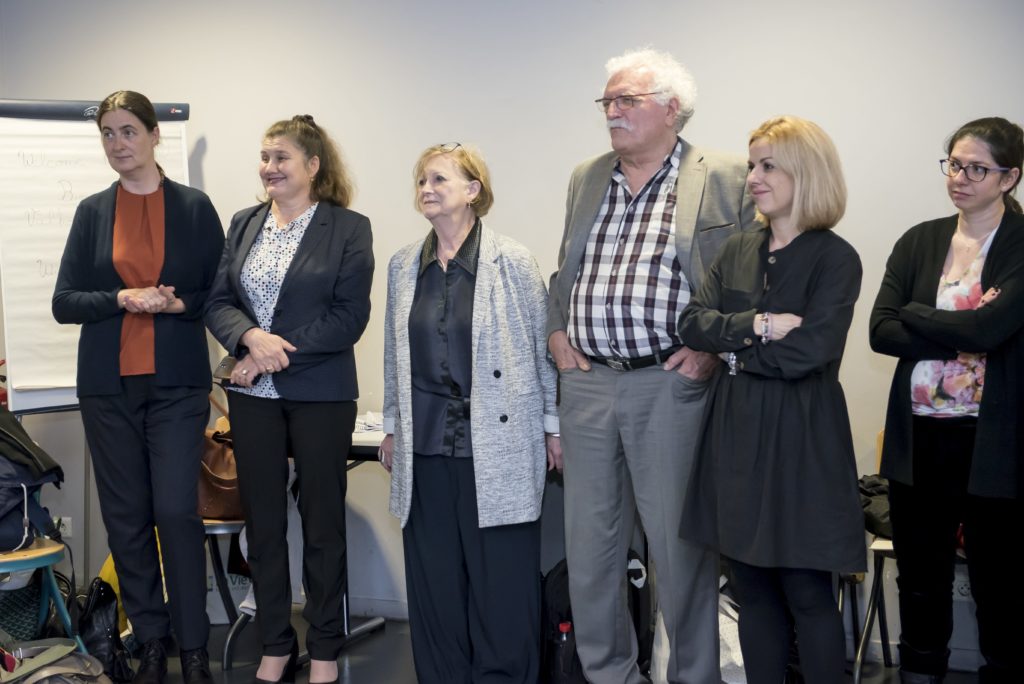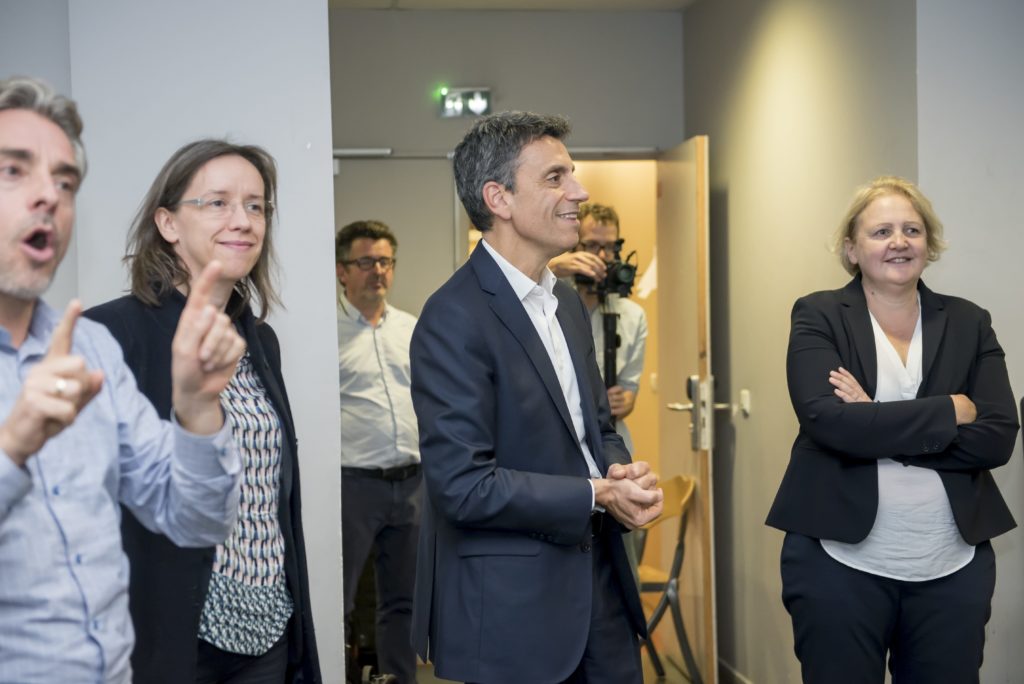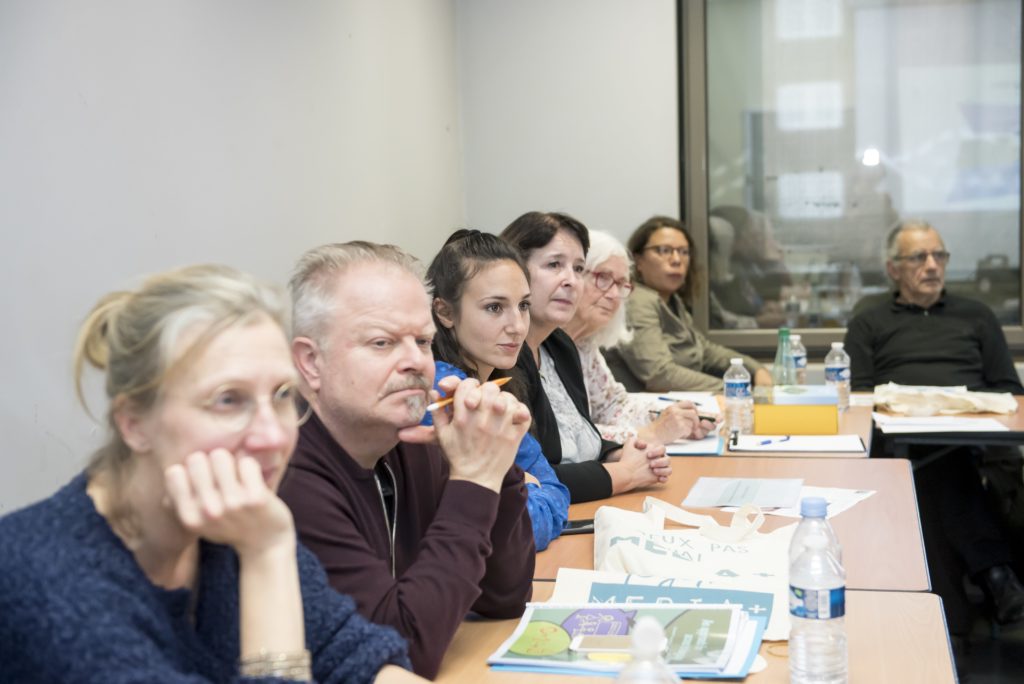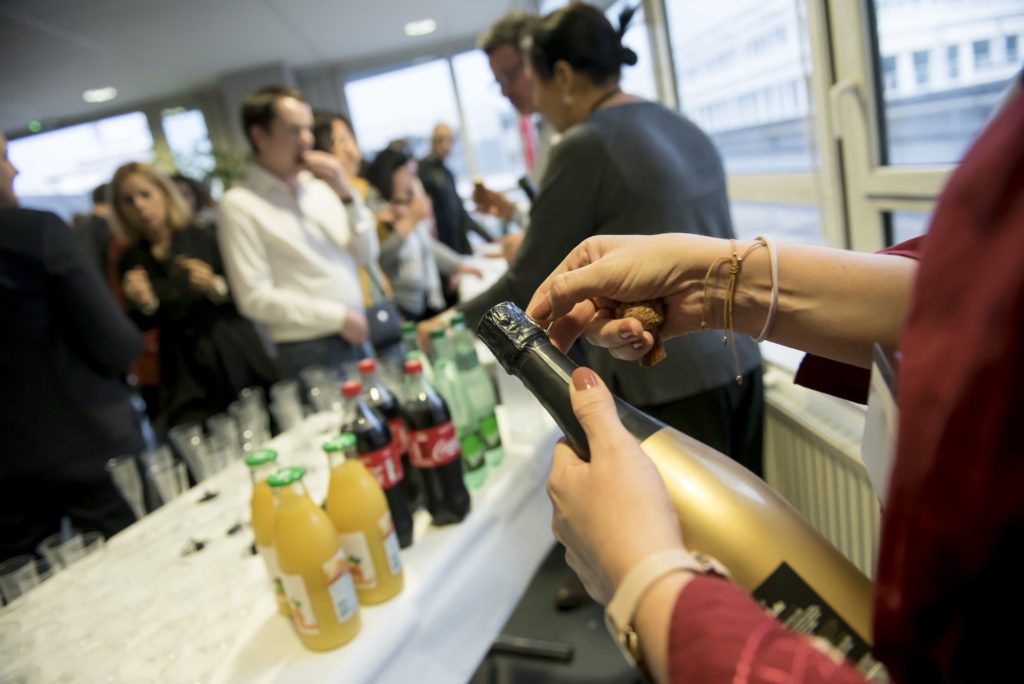PROJECT ERASMUS+: STRATEGIC PARTNERSHIPS, EXCHANGES OF PRACTICE, AND DEVELOPPING INNOVATION
MEDIA+ AN APPROACH FOR ACCESS TO LANGUAGE
The context
The skills development of disabled young people who are severely hindered in their exchanges and have specific communication needs, whether deaf with associated impairments or non-deaf and affected with complex language disorders, is a core preoccupation of the families and professionals providing them with care and support. Indeed, the absence of appropriate means of communication can lead to isolation, or to the appearance of behavioural problems, and thereby further complicate the circumstances surrounding the disability.
The objectives
The MEDIA+ project aspires to put this complex demographic, poorly identified, requiring specific expertise and a repositioning of the entire entourage, into focus. It leans on an access to language and communication approach which uses a number of media (situational drawings, pictograms, etc.) as a support. The foundation of this approach is anchored in reciprocal trust, a mutual recognition which includes the credit we grant the child in having things to say and to share with us. It is not, then, simply a matter of putting in place a simple alternative communication method, but rather, one of spreading a manner of being which rests on a conception of the exchange with the child with significant communication difficulties.
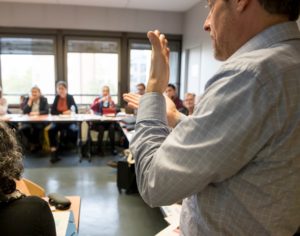
This project is pioneering, since it lays down the initial foundations in the construction of a multimodal training apparatus for professionals and families. It aims to model the access to language and communication approach within a European context, to develop and formalise the pedagogical tools associated with the approach, and put together a competency framework for professionals using the approach. It enables various tools, approaches and experiences to be shared among the different European countries. Indeed, the project is all about discovery, inspiration, and exchange on the topic of support and training apparatuses for professionals and helpers caring for people with multiple disabilities with significant communication difficulties. Consequently, this training apparatus will be constructed in order that interventions on behalf of young people presenting specific communication needs be carried out at the earliest stage possible. At the time of the project’s submission, the Agence Erasmus+ France Education-Formation (Erasmus+ education and training agency France) gave very positive feedback (summary here).
The partners
Piloted by the Centre national de ressources Robert Laplane, the project has brought together a number of partner organisations:
- Laboratoire de Psychologie et d’Ergonomie Appliquées (LaPEA), from the Université Paris Descartes
- Centro Educativo de Ponce de León (Madrid, Spain)
- Liceul Tehnologic Special Pentru Deficienţi (Cluj-Napoca, Romania)
- Comparative Research Network (Berlin, Germany)
- Habiliteringens resurscenter (Stockholm, Sweden)
- Two Quebecker consultants responsible for the co-construction of an assessment grid (Montreal, Quebec)

Proceedings
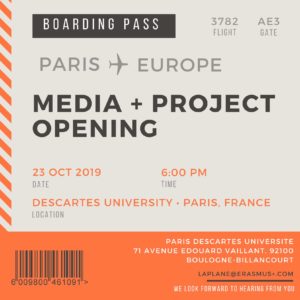
The official project launch took place on the 23rd and 24th of October 2019. We hosted our partners in Paris. Together, we had fruitful discussions; and the partners displayed their strong motivation to participate in the project.
Thus, the partners we enlisted to undertake the project will, during the first phase of the project, involve themselves in modelling and transferring of the approach, entitled as an “approach for assessing communication and language” on various European sites. Once this has been achieved, an evaluation of the approach’s impact on the development of communication and language of young children will be carried out, as well as an evaluation of the skills development of the teams of care professionals.
During the project’s second phase, the objectives will be based on the common creation of a training apparatus. In order to achieve this, discussions on training practices between the different teams, and on the creation and development of common tools, will be organised. To finish, we will construct a competency framework for professionals working with young deaf people with associated disorders or complex language disorders.
FIND OUT MORE
- The official project flyer: Access to communication – See the flyer
- Poster showing the project missions and referring to the Centre de ressources – See the poster
